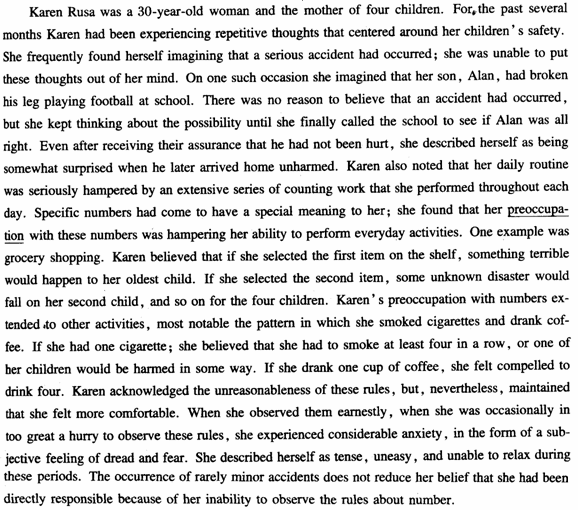
[ A ] describe a woman who suffered from a psychological disease
[ B ] warn the readers against any imagination
[ C ] explain the reason why Karen had such fanciful thoughts
[ D ] present a case for the readers to study
2. Which of the following statements, if true, could most probably cure Karen of the illness?
[ B ] She had a job having little to do with numbers.
[ C ] She went to a psychoanalyst.
[ D ] She gave up smoking and drinking coffee.
3. What does the underlined word preoccupation mean?
[ A ] The first right to occupy something.
[ B ] The first impression.
[ C ] The extreme focus of attention.
[ D ] The question.
4. Which of the following inferences is most probably NOT true according,to the passage?
[ A ] When Karen was in a great hurry to smoke, she would feel much anxiety.
[ B ] If she selected the fourth item on the shelf in a group, the fourth child must experience some unknown disaster.
[ C ] Drinking four cups of coffee would make Karen more comfortable than drinking two cups.
[ D ] Karen was a mother of four sons.
5. The author cited the example of the grocery shopping to
[ A ] demonstrate her children' s safety was closely related to the item she selected in the store
[ B ] account for Karen' s inability to perform everyday activities
[ C ] show how specific numbers were related to the safety of her children
[ D ] further explain that Karen was suffering from a psychological illness












